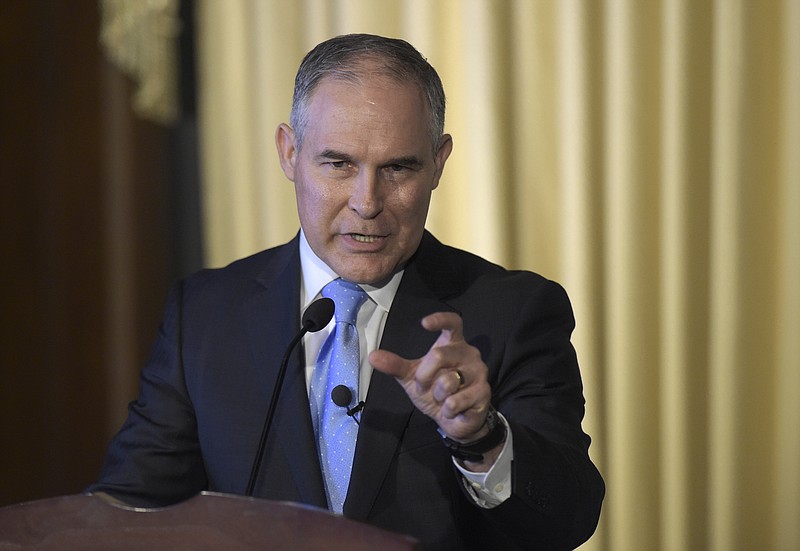A Tennessee small business group on Tuesday urged the state's two U.S. senators to block efforts by the Trump administration to lower auto fuel efficiency standards.
"We're concerned about a rollback," said Lenda Sherrell, the Tennessee Small Business Alliance's state director. "They help businesses save money."
The EPA has readied a final determination that calls for the rolling back of corporate average fuel economy (CAFE) standards for cars and light trucks, according to The Wall Street Journal.
One of the signature achievements of the Obama administration, the current standards would require automakers to sell vehicles that average 54.5 miles per gallon by 2025.
Jonathan Nessle, owner of The Ornamentor in Chattanooga, cited the city's environmental turnaround. A lowering of fuel standards would put such efforts into reverse, Nessle said.
"Chattanooga is in a pocket," he said during a news conference at Coolidge Park. "Our air pollution stays here."
David Burnett, another member of the alliance, termed the existing standards "business friendly."
"They save money every time I go to the gas pump," he said in a statement, noting he commutes about 100 miles between his offices. Savings could reach $3,000 per car over the lifetime of a vehicle when the full CAFE standards are in effect, Burnett said.
Micah Johnson, communications director for U.S. Sen. Bob Corker, R-Tenn., said that while the senator doesn't sit on the committee of jurisdiction that would consider legislation related to auto fuel standards, he will "carefully consider any bill on this issue that comes before the full Senate for a vote."
Nessle said that rolling back the standards would hinder the future development and production of electric vehicles.
"We keep trying to go backwards," he said.
Lisa Andrews, a former owner of Jax Liquors in Chattanooga, said the city used to have a perception problem. But, she said, an environmental cleanup was part of changing how the city is viewed.
CAFE standards are a fleet-wide average. Automakers can sell vehicles that do not meet the fuel efficiency standard if their entire fleet averages out to the level in the regulations.
Automakers signed off on the standards in 2011. But the companies saw an opening after the election of President Donald Trump for the regulations to be re-evaluated.
Last year when Trump announced that he wanted to roll back the Obama-era mileage standards, the president said the standards set by his predecessor "are costly for automakers and the American people" and are less popular with motorists as gasoline prices have declined.
"My administration will work tirelessly to eliminate the industry-killing regulations," Trump promised in Detroit last year.
The EPA is expected to publish its determination by April 1.
Contact Mike Pare at mpare@timesfreepress.com or 423-757-6318.
